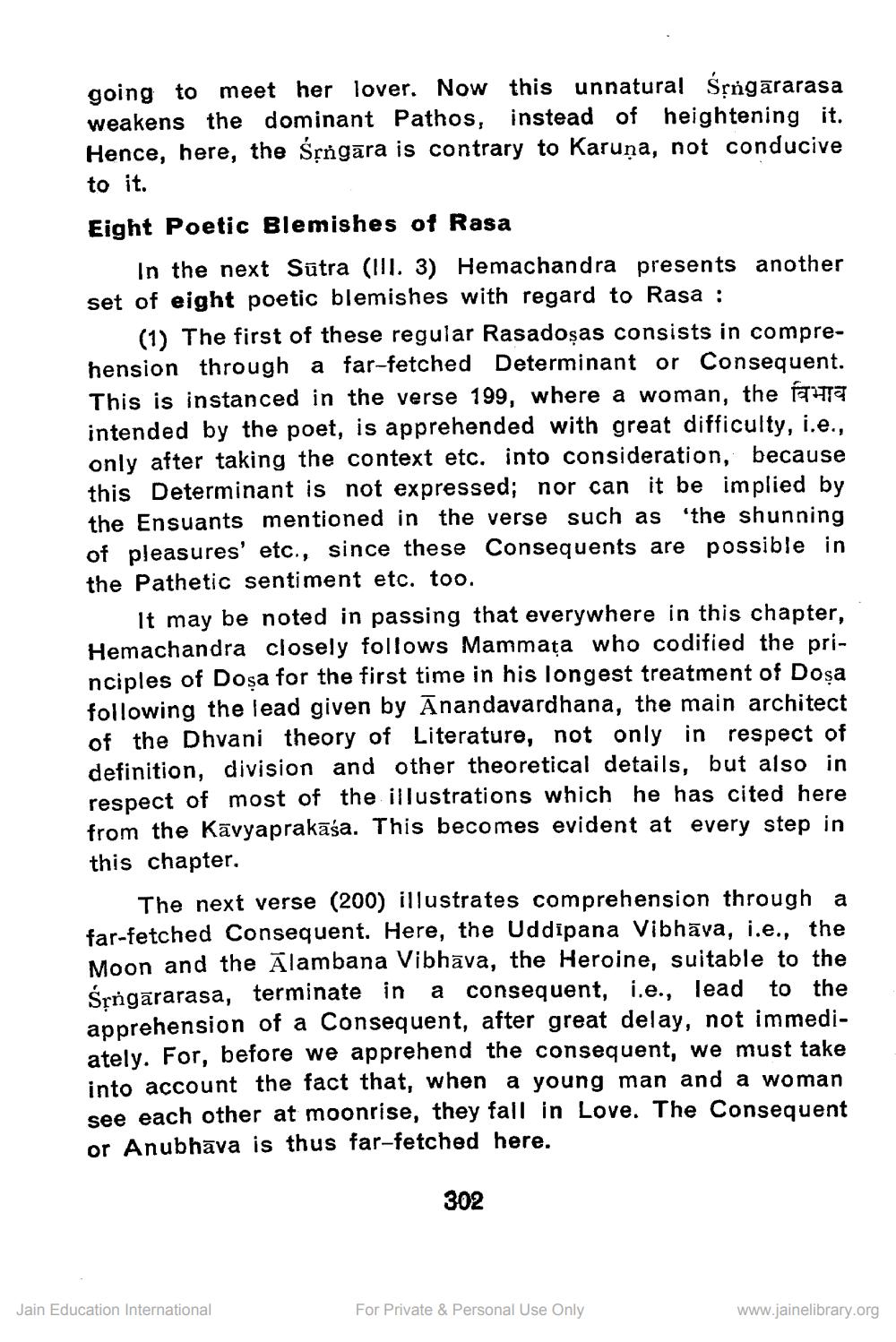________________
going to meet her lover. Now this unnatura! śộngārarasa weakens the dominant Pathos, instead of heightening it. Hence, here, the śțngāra is contrary to Karuņa, not conducive to it. Eight Poetic Blemishes of Rasa
In the next Sūtra (Ill. 3) Hemachandra presents another set of eight poetic blemishes with regard to Rasa :
(1) The first of these regular Rasadoșas consists in comprehension through a far-fetched Determinant or Consequent. This is instanced in the verse 199, where a woman, the fa772 intended by the poet, is apprehended with great difficulty, i.e., only after taking the context etc. into consideration, because this Determinant is not expressed; nor can it be implied by the Ensuants mentioned in the verse such as the shunning of pleasures' etc., since these Consequents are possible in the Pathetic sentiment etc. too.
It may be noted in passing that everywhere in this chapter, Hemachandra closely follows Mammața who codified the principles of Doşa for the first time in his longest treatment of Doșa following the lead given by Anandavardhana, the main architect of the Dhvani theory of Literature, not only in respect of definition, division and other theoretical details, but also in respect of most of the illustrations which he has cited here from the Kāvyaprakāśa. This becomes evident at every step in this chapter.
The next verse (200) illustrates comprehension through a far-fetched Consequent. Here, the Uddipana Vibhāva, i.e., the Moon and the Alambana Vibhāva, the Heroine, suitable to the śrngararasa, terminate in a consequent, i.e., lead to the apprehension of a Consequent, after great delay, not immediately. For, before we apprehend the consequent, we must take into account the fact that, when a young man and a woman see each other at moonrise, they fall in Love. The Consequent or Anubhava is thus far-fetched here.
302
Jain Education International
For Private & Personal Use Only
www.jainelibrary.org




